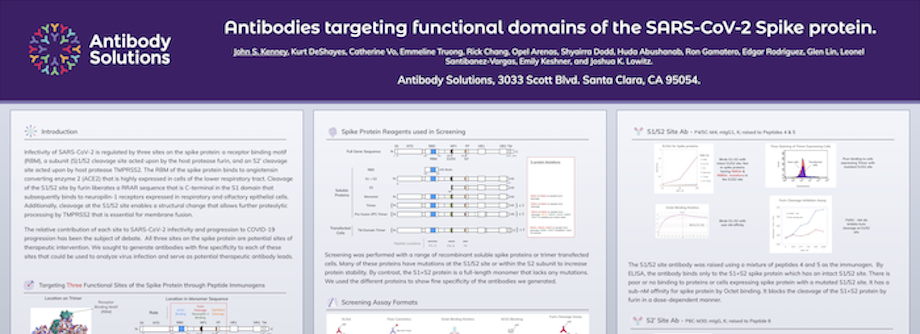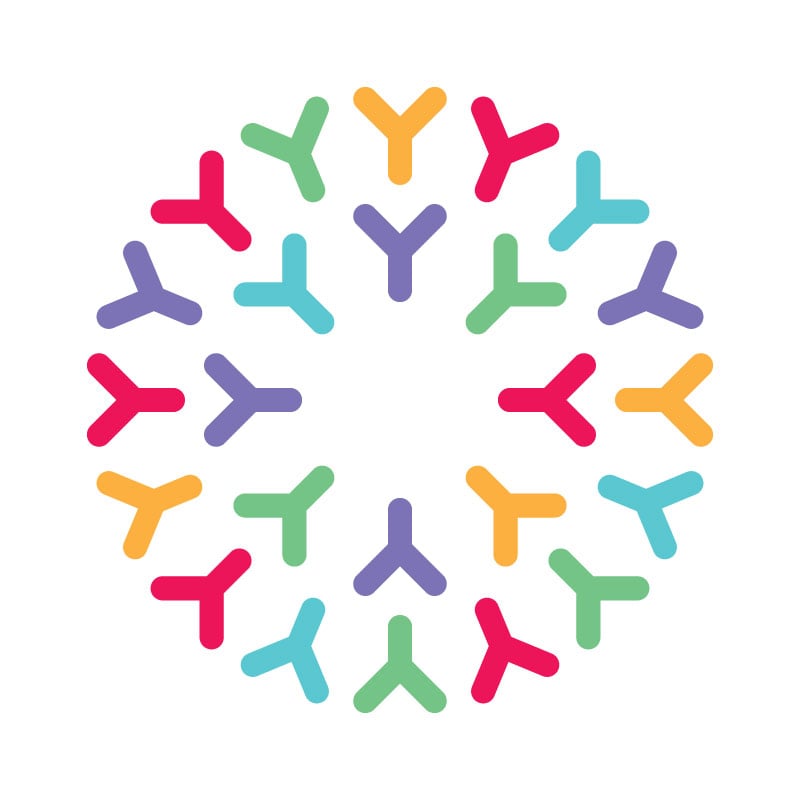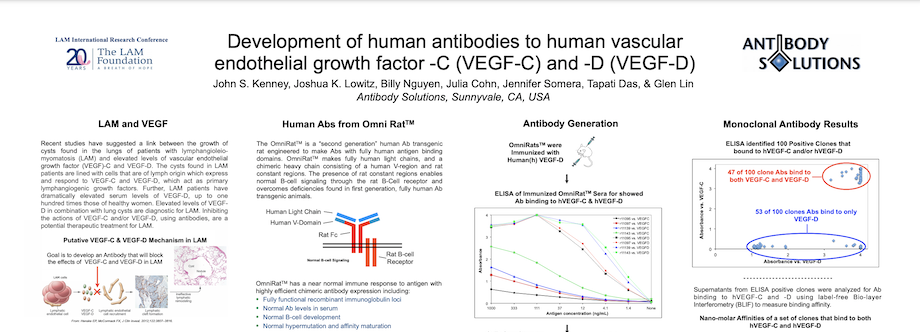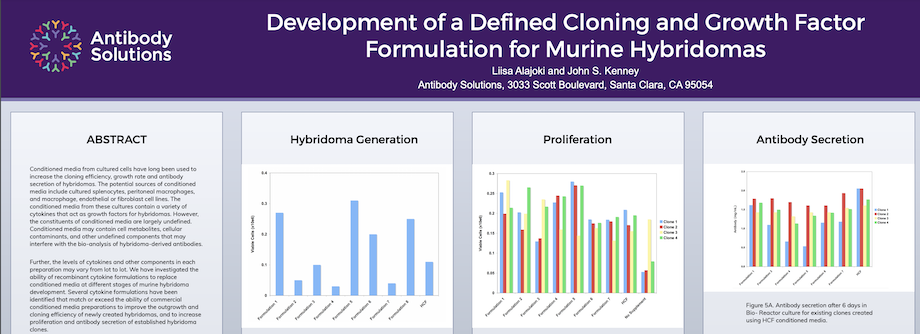2 min read
Antibody targeting functional domains of the SARS-CoV-2 Spike protein
By Antibody Solutions Research Team on Jan 4, 2021 10:17:00 AM
Topics: SARS-CoV-2 Posters

Infectivity of SARS-CoV-2 is regulated by three sites on the spike protein: a receptor binding motif (RBM), a subunit (S)1/S2 cleavage site acted upon by the host protease furin, and an S2’ cleavage site acted upon by host protease TMPRSS2. The RBM of the spike protein binds to angiotensin converting enzyme 2 (ACE2) that is highly expressed in cells of the lower respiratory tract. Cleavage of the S1/S2 site by furin liberates a RRAR sequence that is C-terminal in the S1 domain that subsequently binds to neuropilin-1 receptors expressed in respiratory and olfactory epithelial cells. Additionally, cleavage at the S1/S2 site enables a structural change that allows further proteolytic processing by TMPRSS2 that is essential for membrane fusion.
The relative contribution of each site to SARS-CoV-2 infectivity and progression to COVID-19 progression has been the subject of debate. All three sites on the spike protein are potential sites of therapeutic intervention. We sought to generate antibodies with fine specificity to each of these sites that could be used to analyze virus infection and serve as potential therapeutic antibody leads.
Summary
In Summary, we’ve described 3 unique domain-specific, high-affinity antibodies to the CoV-2 spike protein. They are sensitive to mutations and have functional activity. They should be useful as tools to dissect the mechanisms of SARS-CoV-2 infectivity and serve as potential leads for COVID-19 therapeutics. We will continue to evaluate these antibodies and welcome inquiries to collaborate in studies of virus infectivity.
Download this poster
We invite you to download our poster that details this research study, including our antibody discovery strategy as well as the Spike protein reagents, screening assay formats, and more that we utilized.
Authors
John S. Kenney, Kurt DeShayes, Catherine Vo, Emmeline Truong, Rick Chang, Opel Arenas, Shyairra Dodd, Huda Abushanab, Ron Gamatero, Edgar Rodriguez, Glen Lin, Leonel Santibanez-Vargas, Emily Keshner, and Joshua K. Lowitz.

Written by Antibody Solutions Research Team
Filter by Keyword
- Posters (21)
- Publications (15)
- Therapeutic Monoclonal Antibodies (4)
- Monoclonal (3)
- Multi-meric Membrane (3)
- Multi-pass transmembrane (3)
- Transgenic Animals (3)
- ELISAs (2)
- Human Therapeutic Antibodies (2)
- Hybridoma (2)
- SARS-CoV-2 (2)
- APOBEC3G (1)
- ARMER (1)
- ATX-GX (1)
- Alloy Therapeutics (1)
- Antibody Discovery (1)
- Antibody Generation (1)
- BRCA2 (1)
- CEM15 (1)
- Cadherin-11 (1)
- Carcinogenesis (1)
- Conditioned Media (1)
- Critical Reagents (1)
- Cystine Knot Peptides (1)
- D Protein (1)
- DLL4 (1)
- Fully Human (1)
- HIV-1 (1)
- HSA (1)
- IL-1 alpha (1)
- Immune B-cells (1)
- Immunization (1)
- Knottins (1)
- L-amino acids (1)
- L-selectin (1)
- LAM (1)
- LBAs (1)
- LOXL2 (1)
- Lymphangioleiomyomatosis (1)
- McAbs (1)
- OmniAb (1)
- OmniRat (1)
- PNAd (1)
- Pharmacokinetic (PK) (1)
- Prolactin (1)
- Secretion Capture Report Web (1)
- Stereochemistry (1)
- Therapeutic Targets (1)
- Tissue Culture (1)
- Transgenic H2L2 Mice (1)
- VEGF-A (1)
- VEGF-C (1)
- VEGF-D (1)
- p53 (1)




